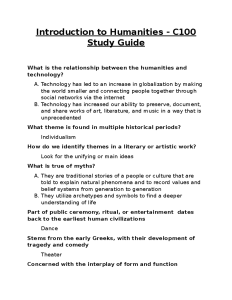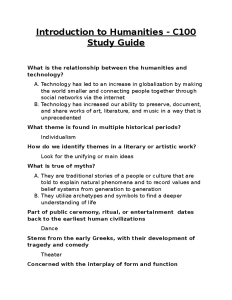Black Switzerland represents a significant yet often overlooked aspect of the nation’s cultural landscape, where issues surrounding race and identity intersect with diverse histories and experiences. As explored by Jessie Cox in his illuminating book “Sounds of Black Switzerland,” the Black experience in this landlocked European country sheds light on the broader implications of race in Switzerland and beyond. Through a blend of cultural analysis and music criticism, Cox tackles complex topics such as Afrofuturism and anti-Blackness issues that persist within Swiss society. His work invites readers to rethink the narrative around Black lives, highlighting the importance of discourse on race and the erasure of Black identities in Europe. By emphasizing the need for understanding and dialogue, Black Switzerland serves as a call to recognize not just the struggles but also the vibrant contributions of Black communities to the nation’s heritage.
The exploration of racial dynamics in Switzerland, often referred to as the discourse on Black identity within this unique context, unveils a tapestry of cultural nuances. Jessie Cox’s recent publication delves into the artistic representations and experiences of Black individuals, initiating conversations that echo themes of Afrofuturism and systemic anti-Black biases. By addressing the historical and contemporary challenges faced by Black communities, he opens pathways for dialogue about inclusion and social justice. This alternative narrative plays a crucial role in redefining perceptions, advocating for a more nuanced understanding of race, and highlighting the diverse voices that shape the fabric of Swiss society. Through his insightful work, Cox not only contributes to the academic field but also inspires collective reflection on race and identity throughout Europe.
Understanding Race in Switzerland
The conversation around race in Switzerland remains muted, a reality that Jessie Cox confronts in his latest work, “Sounds of Black Switzerland.” This thought-provoking book reveals the complexities of the Black experience in a nation where discussions of race often feel uncomfortable or unwelcome. Through a blend of music criticism and cultural analysis, Cox urges readers to acknowledge the nuanced dynamics of Blackness within the Swiss context. He emphasizes that understanding race in Switzerland entails grappling with historical and contemporary issues of anti-Blackness, even in spaces where these conversations are typically overlooked.
Cox’s work serves as a catalyst for dialogue, encouraging both residents and visitors of Switzerland to critically engage with their perceptions of race. The intricacies of racial identity and representation in a predominantly white society are explored, as Cox blends academic insight with accessible language. His ambition is not just to critique the prevalent indifference toward Black lives but to invite all individuals in Switzerland to reflect on their roles in shaping the community’s discourse on race. By doing so, Cox hopes to lay the groundwork for a more inclusive understanding that embraces the rich tapestry of experiences that define Black existence in Switzerland.
Black Switzerland: Voices and Narratives
“Black Switzerland” is a term that Cox uses to articulate a reality often invisible in Swiss society. By focusing on the voices of Black artists and composers, such as Nigerian Swiss pioneer Charles Uzor, Cox sheds light on a cultural landscape interwoven with struggle and resilience. The book does more than document these experiences; it showcases the contributions of Black Swiss individuals to the broader cultural narrative. Through music and art, they resist erasure, creating a vital dialogue that expands the understanding of what it means to belong in Switzerland.
The stories found in “Sounds of Black Switzerland” illustrate a diverse array of experiences, from coping with anti-Blackness to celebrating artistic triumphs. Cox highlights the importance of these narratives in fostering solidarity among marginalized populations. As he draws connections to works like the seminal “Farbe bekennen,” Cox situates contemporary Black Swiss experiences within a larger historical context, emphasizing the ongoing struggle for equity and representation in Europe. This movement towards inclusivity not only highlights the Black experience but also enriches the cultural landscape of Switzerland.
The Intersection of Afrofuturism and Swiss Culture
Afrofuturism, a cultural movement that blends African mythology, science fiction, and historical narratives, is integral to understanding Black identity in Switzerland. Cox explores how Afrofuturism offers imaginative frameworks that challenge the status quo. By looking at the intersection of Swiss culture and Afrofuturist principles, he illustrates how Black musicians and artists are crafting a unique identity that draws on both local and global influences. This integration fosters a sense of belonging and liberation for those navigating multiple cultural landscapes.
Moreover, Afrofuturism serves as a beacon of hope for re-imagining society and rethinking race relations in Switzerland. Through his courses and writings, Cox aims to inspire future generations to create art that envisions a world free from the constraints of race-based prejudice. He emphasizes that embracing Afrofuturism allows for a radical rethinking of possibilities, encouraging individuals to envision innovative ways of being while celebrating Black heritage. Such creative explorations are pivotal in cultivating a brighter future, where diversity and creativity can thrive.
Navigating Anti-Blackness in Switzerland
Anti-Blackness in Switzerland manifests through various systems, including judicial practices and immigration policies that disproportionately affect individuals of African descent. In “Sounds of Black Switzerland,” Cox underscores the importance of confronting these systemic issues through public discourse. By analyzing recent instances of police violence, such as the tragic deaths of Mike Ben Peter and George Floyd, he amplifies the urgency of addressing anti-Blackness in society. Such comparisons highlight both localized and global patterns of racial injustice, offering a more comprehensive understanding of how race operates globally.
Cox’s discussions do not merely point to the existence of anti-Blackness but advocate for a transformative dialogue that seeks to eradicate these issues at their roots. By sharing personal anecdotes and community stories, he paints a vivid picture of the daily realities faced by Black individuals in Switzerland. His call to action invites all Swiss citizens to reflect on their roles in dismantling systemic racism. Ultimately, Cox’s work is a crucial reminder that discussing anti-Blackness is essential not only for those directly affected but for everyone striving for a just society.
Cultural Contributions and Recognition
The contributions of Black creators in Switzerland, as highlighted by Jessie Cox, are often underappreciated, yet they form a vital part of the nation’s cultural identity. Through his exploration of works by artists like rapper Nativ, who crafts messages of change through his music, Cox illustrates the powerful role of art as a conduit for social commentary. Such artists serve as cultural touchstones, navigating the complexities of their identities while contributing to the rich tapestry of Swiss culture.
Cox’s recognition of these cultural contributions emphasizes the need to celebrate diversity within the arts. Acknowledging and promoting Black voices in Switzerland not only fosters a richer cultural landscape but also challenges the existing narratives that have historically marginalized these communities. By engaging with and amplifying the work of Black artists, Switzerland can move towards a more equitable presentation of its cultural heritage. This shift is imperative for a full appreciation of how the nation’s art reflects its diverse populace.
Educational Initiatives and Cultural Awareness
Education plays a crucial role in addressing race and fostering cultural awareness in Switzerland. Jessie Cox’s commitment to teaching reflects the necessity of integrating discussions about race and Black experiences into academic settings. By developing courses that explore Afrofuturism and the intersections of music and culture, Cox invites students to engage critically with the complexities of race. This approach not only informs students but also empowers them to contribute to broader societal discussions surrounding race and identity.
Furthermore, educational initiatives that center Black narratives and experiences can help mitigate the misunderstandings surrounding race in Switzerland. Programs highlighting the contributions of Black individuals in history and culture can foster a greater appreciation for diversity among students of all backgrounds. By creating space for dialogue and exploration, such initiatives pave the way for richer cultural understanding and can significantly diminish the prevalence of anti-Black sentiments in Swiss society.
The Role of Artistic Expression in Social Change
Artistic expression serves as a powerful tool for social change, a sentiment echoed in Cox’s work. By showcasing the realities of Black life, artists challenge societal norms and initiate critical discussions about race and identity. Jessie Cox illustrates how Swiss musicians and artists utilize their platforms to both reflect and critique their societal experiences. This artistic intervention provides a unique avenue for raising awareness about anti-Blackness while simultaneously advocating for inclusion and equality.
The radical potential of artistic practice lies in its ability to inspire hope and envision new pathways forward. Cox believes that harnessing creativity can lead to innovative solutions for social issues, allowing communities to re-imagine their identities and relationships. Whether through music, visual arts, or literature, the impact of these expressions can mobilize collective action and drive change, proving that art is not only an avenue for personal expression but also a vital component of social justice advocacy.
Imagining New Futures Through Collaboration
Collaboration is essential for creating inclusive spaces that reflect a diverse society. In his work, Jessie Cox emphasizes the importance of collective efforts in addressing race and fostering cultural understanding. By bringing together artists, scholars, and community members, innovative projects can emerge that encapsulate various perspectives on Black experiences in Switzerland. This collaborative spirit not only enhances creativity but also builds solidarity among individuals from different backgrounds.
Cox’s vision for a future where arts practice is invested in potential possibilities reflects a commitment to navigating complexities of identity through teamwork. By engaging in collaborative artistic endeavors, marginalized voices can find representation and recognition, leading to enriched cultural dialogues. This cooperative approach is vital for imagining new futures that transcend limitations and foster a society that truly values inclusivity and diversity.
Celebrating Diversity in Swiss Culture
Acknowledging and celebrating diversity within Swiss culture is crucial for creating an inclusive environment. Jessie Cox’s exploration of Black lives in Switzerland highlights the richness and complexity of a society that has often been predominantly homogenous. By recognizing the contributions of Black individuals, Switzerland can move beyond tokenism and genuinely appreciate the multifaceted nature of its cultural identity. Celebrating these differences not only enriches the nation but also encourages greater understanding among its citizens.
Furthermore, cultural celebrations that actively include diverse narratives and experiences can challenge stereotypes and foster empathy. Cox advocates for artistic events, workshops, and exhibitions that highlight the voices of Black artists and creators, allowing them to share their stories and talents with a wider audience. This emphasis on celebration can transform public perceptions, creating stronger connections among communities and reinforcing the idea that diversity is a strength, enhancing the fabric of Swiss society.
Frequently Asked Questions
What does Jessie Cox reveal about the Black experience in Switzerland?
In his book “Sounds of Black Switzerland,” Jessie Cox explores the complexities of the Black experience in Switzerland, emphasizing the lack of discussion around race and the impact of anti-Blackness in the country’s culture and systems. Through music criticism and cultural analysis, he aims to highlight both the challenges faced by Black individuals and the imaginative possibilities that arise from engaging with Blackness in Switzerland.
How does Afrofuturism relate to the narrative of Black Switzerland?
Afrofuturism plays a significant role in the narrative of Black Switzerland as highlighted in Jessie Cox’s work. The genre envisions futures that incorporate Black cultural histories and realities, providing a lens through which to explore racial dynamics in Switzerland. Cox includes discussions of Afrofuturism to emphasize creativity and hope amidst the struggles against anti-Blackness and to demonstrate how art can help re-imagine Black life in Switzerland.
What are some anti-Blackness issues addressed in “Sounds of Black Switzerland”?
Jessie Cox addresses various anti-Blackness issues in his book, including the color blindness prevalent in discussions of race in Switzerland, systemic challenges within the judicial and immigration systems, and the erasure of Black voices in national narratives. By examining these topics, Cox encourages a deeper awareness and discourse about the realities of Black lives in Switzerland.
Why is the concept of Black Switzerland important in contemporary discussions about race?
The concept of Black Switzerland is crucial for contemporary discussions about race because it challenges the often overlooked narratives of Black individuals living in a predominantly White society. Jessie Cox’s exploration provides insights into the historical and cultural implications of race in Switzerland, thereby fostering a necessary dialogue about belonging, identity, and the varied Black experiences within this context.
What impact does Jessie Cox hope to achieve with his book discussing Black Switzerland?
Jessie Cox aims to open up a dialogue about Black Switzerland that transcends the narrative of victimhood associated with anti-Black violence. His goal is to uncover the creative and transformative possibilities inherent in Blackness, suggesting that artistic expression can lead to new worlds and relationships, ultimately fostering a greater understanding of diverse experiences in Switzerland.
| Key Point | Details |
|---|---|
| Background on Jessie Cox | Grew up in Switzerland, faced challenges discussing Black identity. |
| Book Overview | “Sounds of Black Switzerland” addresses race dynamics in Switzerland and aims to spark discourse about Black lives. |
| Focus Areas | Examines Blackness, Afrofuturism, anti-Blackness, and the effects on Swiss judicial and immigration systems. |
| Inspirational Figures | References Nigerian Swiss composer Charles Uzor and Afro-German studies, including the impact of the book ‘Farbe bekennen.’ |
| Artistic Perspective | Promotes artistic practice as a means to envision new realities and commonalities beyond violence experienced by Black communities. |
| Innovative Ideas | Encourages thinking about shared experiences through diverse facets, promoting unity and understanding among cultures. |
Summary
Black Switzerland represents a unique intersection of culture, identity, and race discussions within a predominantly white landscape. Jessie Cox’s work in “Sounds of Black Switzerland” challenges societal norms by addressing Black experiences and sparking important conversations on Blackness. By exploring music, history, and the art scene, the discourse encourages a deeper understanding of race in Switzerland, highlighting the creativity and resilience inherent in Black culture. As more voices join this conversation, the potential for change and unity through artistic expression becomes clearer, revealing the rich tapestry of Black life in Switzerland.




